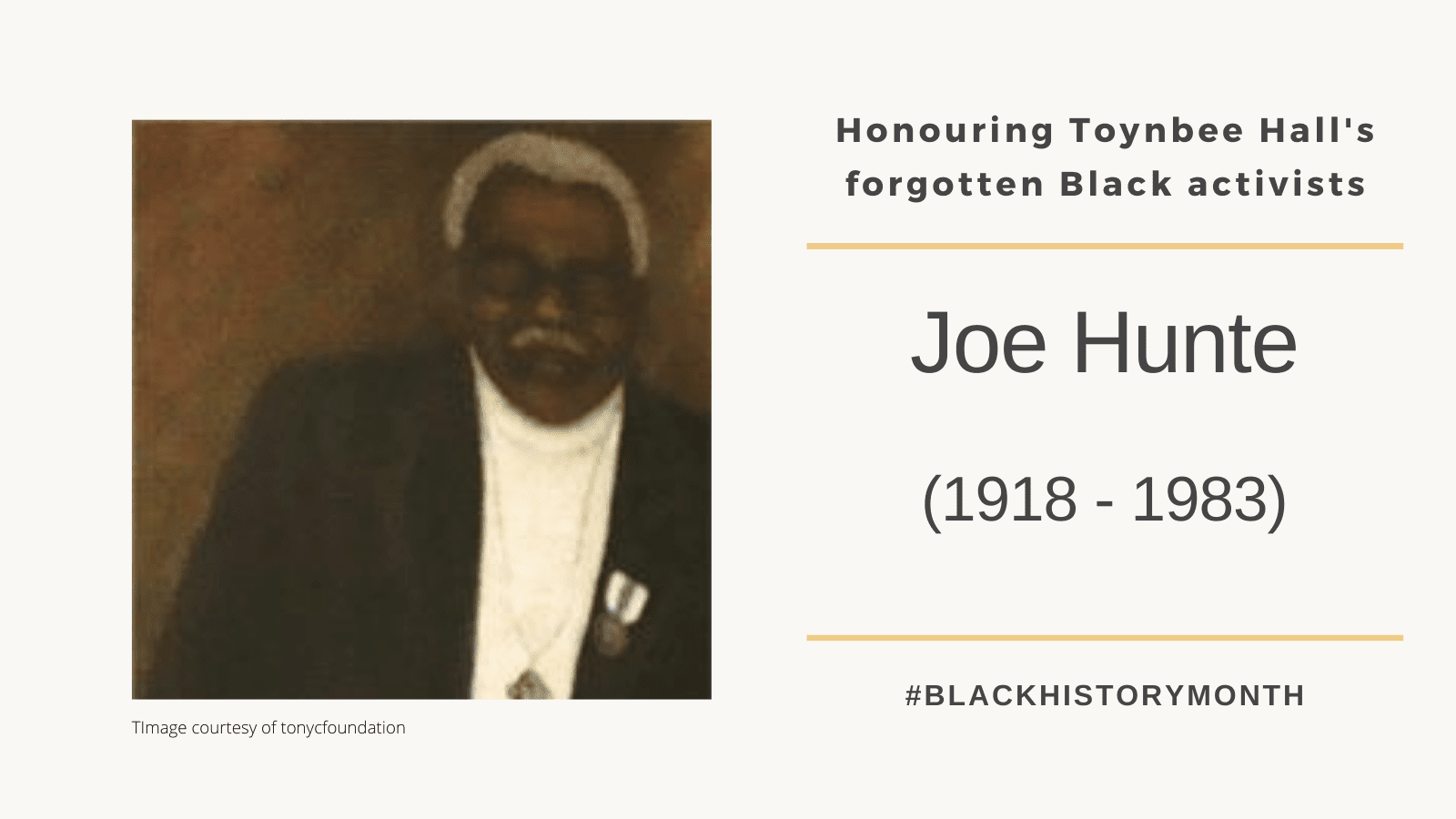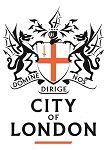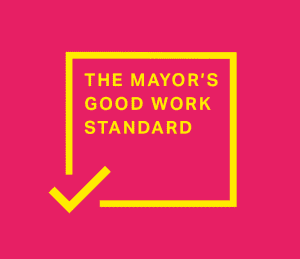Black History Month: Honouring Toynbee Hall’s forgotten Black activists – Joe Hunte (1918-1983)

Joseph Hunte was a community activist who fought to improve the lives of people of colour in London.
Toynbee Hall has a long and proud history of striving for and achieving positive social change for the people of East London and beyond. Since we were founded in 1884, many individuals and organisations have passed through our doors and made invaluable contributions to the community. As part of Black History Month, we want to celebrate the achievements and impact of Black activists throughout our history.
To our great shame in our archives as in so many historical records, the achievements and contributions of Black staff and volunteers are barely documented. We want to be able to share the stories of the many Black people who have worked in our community whether at a community, grassroots or policy level to progress human rights and dignity for all people and particularly for Black people. We want our archive to accurately celebrate that, not just this month but forever. We have been working hard to research, record and recognize the work of women and People of Colour at Toynbee Hall and have found records of three Black men who ran important organisations from Toynbee Hall that improved the lives of expat communities in London. In this article we remember Joe Hunte.
Joe Hunte was born in St. Vincent and worked as a teacher in Trinidad. He came to Britain in 1958 and studied Politics, Economics and Philosophy at Swansea University. He and his family then moved to Brixton. Records from the mid-1960s show Hunte was a voice for London’s growing Caribbean community. In 1966, as Secretary for the West Indian Standing Conference, Hunte published a booklet based on complaints from London’s black community about police behavior, which suggested ways to improve relations between the police and immigrant communities. He was also involved with the Joint Council for the Welfare of Immigrants who challenged the Home Office’s policies. He was frequently invited to talk to groups of trainee and serving police officers and many of his ideas have become standard community police practice.
In 1968 he came to work at Toynbee Hall to run The Council of Citizens of Tower Hamlets (CCTH), originally established as the Council of Citizens of East London after the Battle of Cable Street to end anti-Semitic violence. In the late 1960s, the population of Tower Hamlets included around 3000 people from the Caribbean and 8000 people from Asia, including 4,300 people from East Pakistan, now Bangladesh. In Tower Hamlets, the Bangladeshi community were living with the day-to-day threat of racist violence. Through the CCTH, Hunte was tasked with building an improved relationship between the community and the local police to prevent further incidents. In addition, he ran school and community programmes aiming to unite the local population.
In 1977, he was awarded the Queen’s Silver Jubilee medal for services to the local community.
Hunte remained as Senior Community Relations Officer in the London Borough of Tower Hamlets until his retirement.
After his death, Joe Hunte Court in Lambeth was named after him.

































